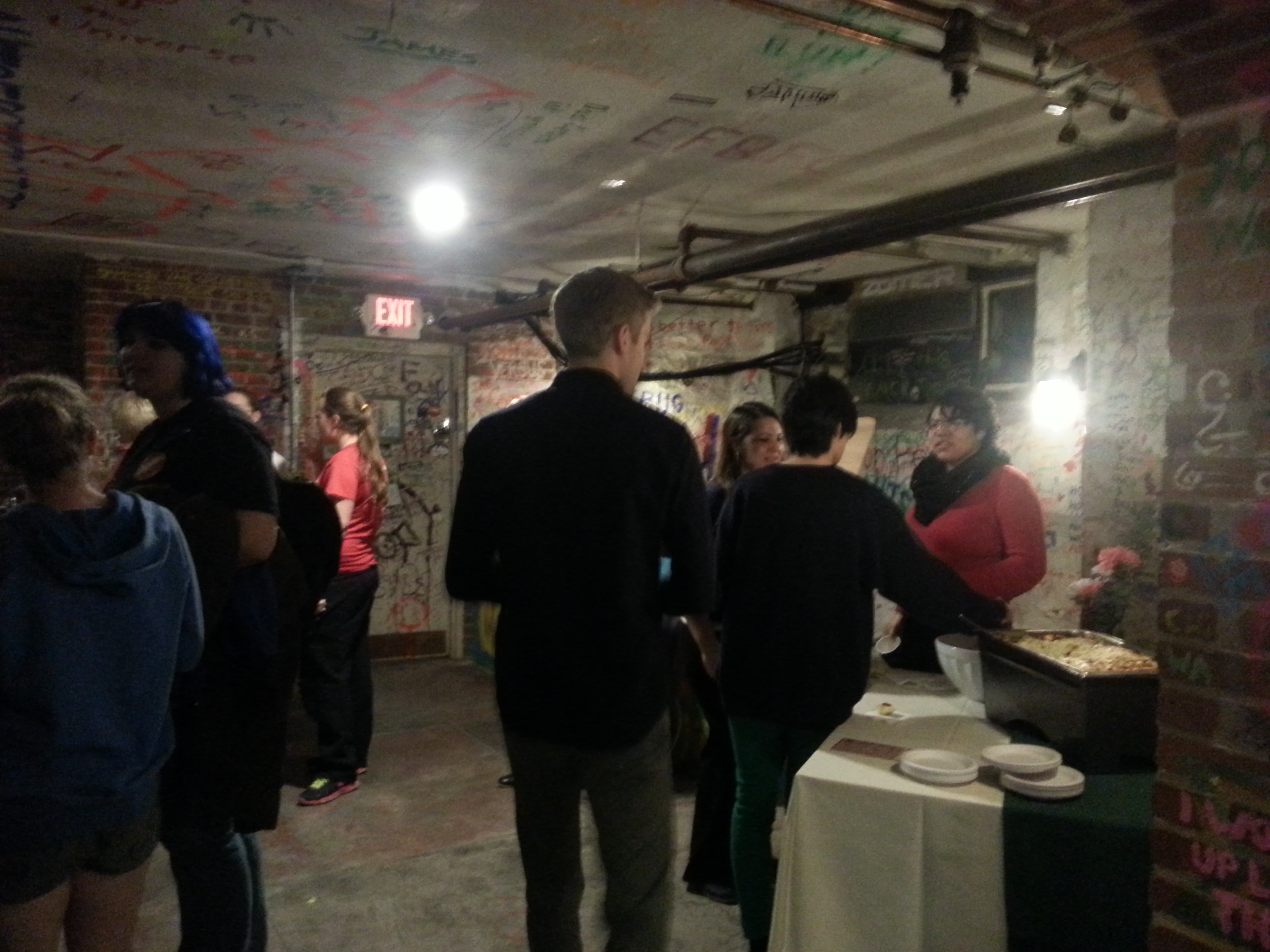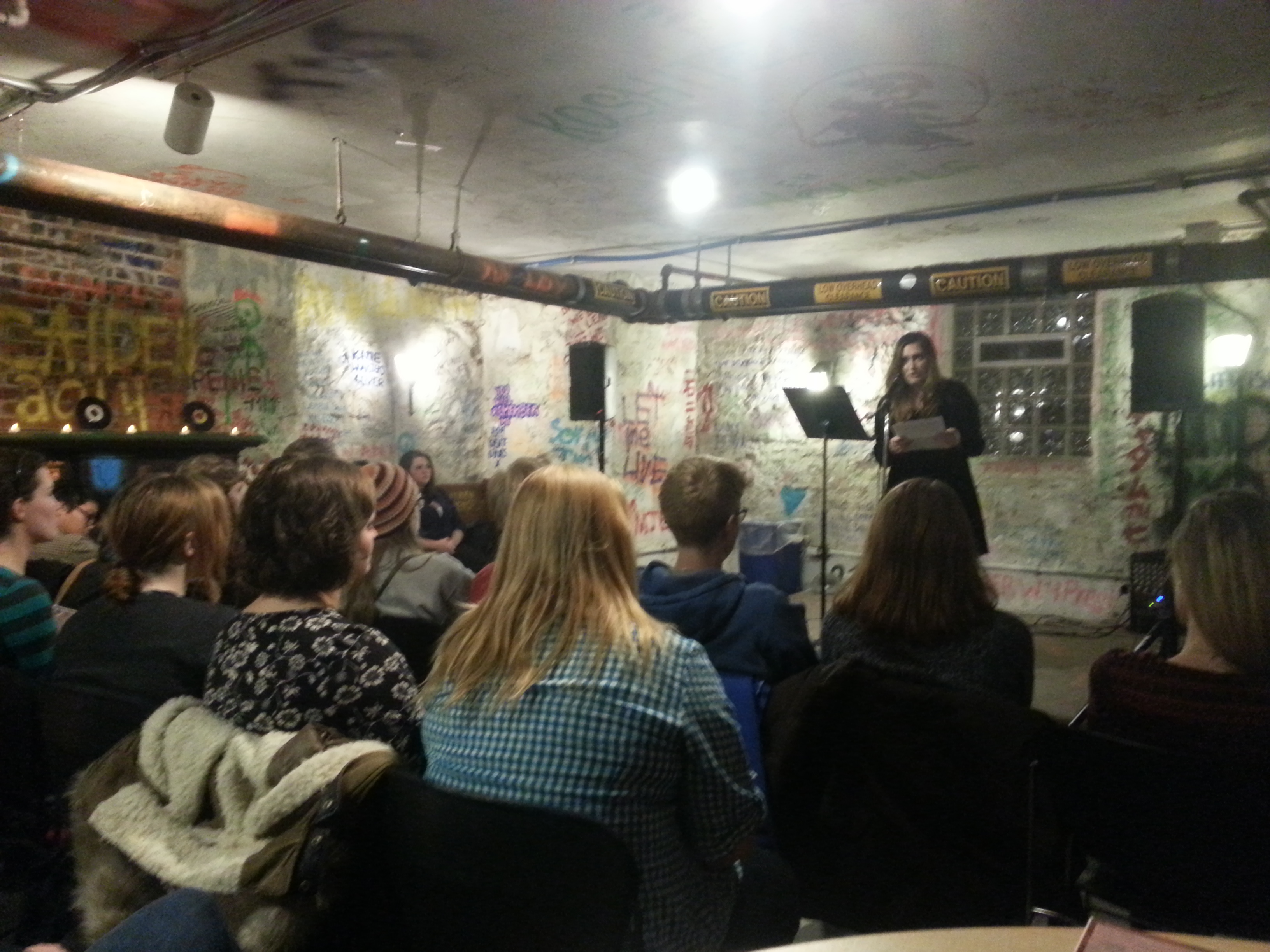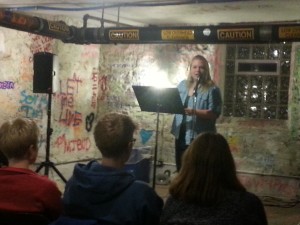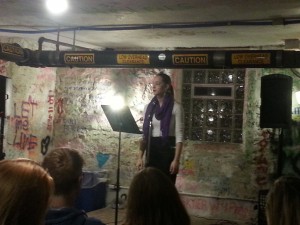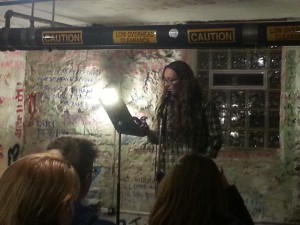The goal of the Chatham University Creative Writing Club (CWC), according to its mission statement on the University’s website, is to, “unite Chatham undergraduate writers and to further the development of their writing skills.”
One of the ways that the club accomplishes this goal is through it’s yearly reading series which provides students with opportunities to workshop their prose and poetry pieces, and read them to an audience of like-minded individuals with the goal of gaining experience and improving their writing.
The CWC’s reading series, however, recently underwent a change in structure as the former “Spit Reel,” gave way to the new and improved “Rea Coffeehouse Reading Series,” which had its premiere in the Rea Coffeehouse on Thursday, November 20.
The event, emceed by CWC advisor Lorena Williams, showcased five featured readers and included an open-microphone portion for anyone in reading their original works.
The series debut was a great success and student reactions to it were positive, but many were interested in the cause of the change, which impacted the name, format, and location of the event.
According to Terensky, “The name of our reading series officially changed over the summer,” which was just in time to begin planning for the event on November 20.
“The Creative Writing Club felt that Spit Reel was not a very clear name for the undergraduate reading series,” Brittanie Terensky, CWC president, later explained.
A lot of people would tell us how they would have come to the event if they would have known what it was; the name just didn’t convey that it is a reading series.”
The event on Nov. 20 reflected this opinion, as there was an excellent turnout, and the open microphone portion of the event was dominated by people outside of the creative writing major.
“The Creative Writing Club always encourages everybody to submit for Featured Reader and to read at open mic, regardless of major, so it was great to see other students branching out and reading at our event,” Terensky said in response to this.”
Additionally, the format of the reading series changed from taking place twice a semester to only taking place once a semester, the number of featured readers rose from three to five, and the time allotted for each featured reader increased for eight minutes to 15 minutes.
Describing the process of choosing the featured readers, Terensky said, “Featured Readers submit their work to our club advisor, Lo Williams, and the CWC’s officers receive them anonymously. The officers then go through the submissions and decide which work is the strongest.”
The process does not end there, however, as they also, “offer those individuals a workshop with the club where we can all look over the submissions and talk about how they are going to read out loud and how to make them stronger.”
“I was very happy with the event. I think there was a great turnout and we had some amazing readers,” Terensky said of the event.
In response to the new format and location, she said, “having the reading series in Rea Coffeehouse completely changes the atmosphere of the event, which we were all so happy with. The CWC’s undergraduate reading series is definitely at home in the Rea Coffeehouse.”
